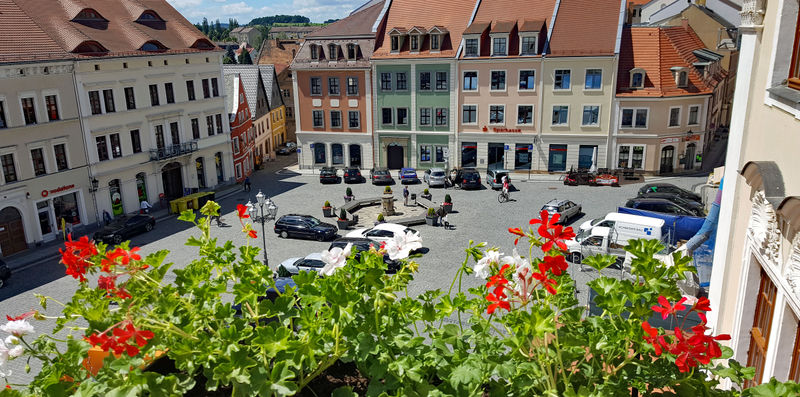
On 3 October 1990, on the Day of German Unity, the Ettlingen - Löbau twinning agreement was signed by Mayor Offele|Ettlingen and Mayor Schulte|Löbau. Many contacts between the administrations and above all contacts between the citizens via citizens' associations | hiking clubs | bowling club | sports communities | school partnerships | volunteer fire brigade have taken place since then and keep the town twinning alive.
Web: www.ettlingen.de
.jpg)
On 12 June 1998 the partnership document between the towns of Luban - Löbau was signed by the Mayor Rowinski from Luban and Mayor Schulte from Löbau. The town twinning is supported by a historical alliance of the Upper-Lusatian Six Towns League from 1346, to which both towns belonged. In 1991, on the occasion of the 770th anniversary of the foundation of Löbau, the Upper-Lusatian Six Towns League was revived. The alliance was enlarged by one Polish town, Zgorzelec, as the eastern part of Görlitz, as the eastern part of Görlitz, on the eastern side of the Neisse River, which became an independent Polish town. Today, joint activities of cities can be found primarily in culture and tourism.
Web: www.luban.pl

As partners in a Europe that is growing together, the towns of Löbau and Makó in Hungary established their town-twinning partnership on 1 April 2005. Already in 2003, talks and mutual visits began, which had their basis in the new economic cooperation. The initiative was led by the Association "Oberlausitzer Gewerbe- und Leistungsschau”, which has established contacts with Hungary. The partnership was to develop through cooperation in the economy, in the associations and, of course, individually through interpersonal relationships.
Makó is a town in south-east Hungary, only a few kilometres from the Romanian border. In Makó with its 26,000 inhabitants there is relatively little industry and much agriculture. An excellent agricultural product around Makó is onions. The town has set a monument to it and even had the theatre built in the shape of an onion. Plenty of sun, nutrient-rich soil and special cultivation methods make the Makó onion a much sought-after product. Today, almost half of the entire Hungarian onion production comes from the region, which corresponds to a harvest of around 35,000 tons per year.
Web: www.mako.hu
.jpg)
Seite teilen:

